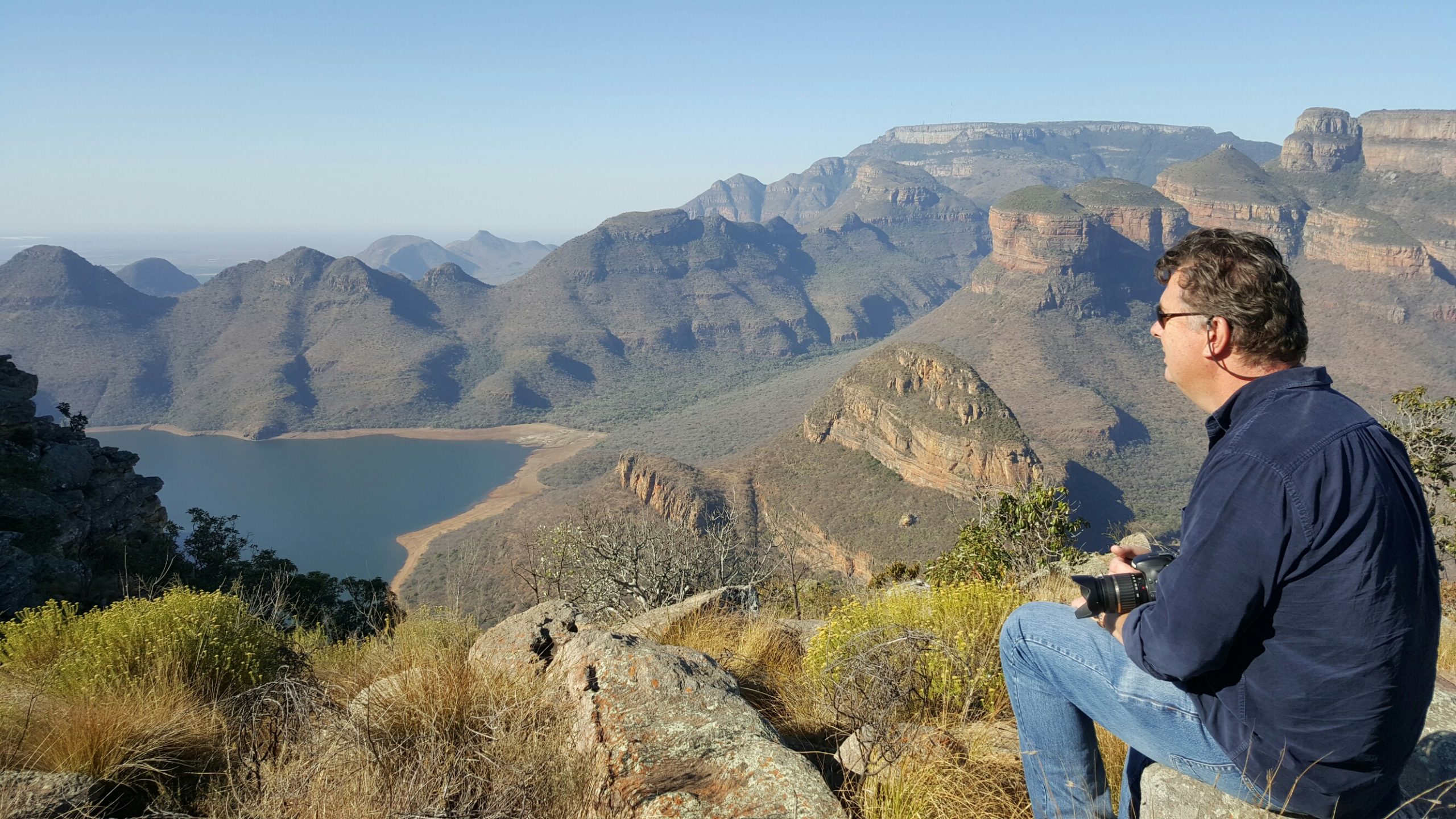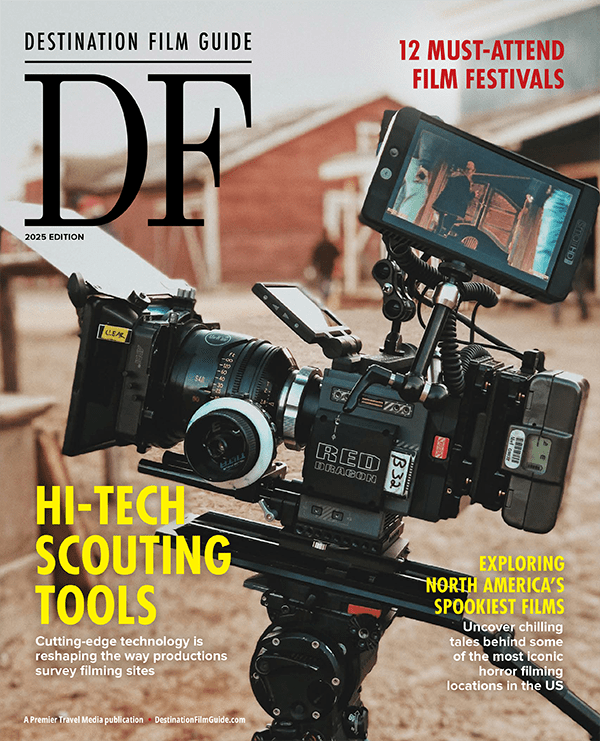From bike messenger to the supervising location manager on some of Hollywood’s biggest-budget productions, Ilt Jones reflects on his beloved 30 year career.
 “Shutting down streets and blowing things up, that’s my specialty,” says Ilt Jones. Now retired, Jones was a pivotal key in the making of movies such as Inception, Iron Man 3, Kong: Skull Island, Black Panther: Wakanda Forever, Transformers, and so many more household names. His career began in LA, where he was working as a bike courier delivering packages with no sights set on the film business. He knew the city well, so he was asked by a friend to take scouting photos for a low-budget film she was working on. The director liked the photos enough that Jones was asked to be the location manager, and he attributes his success to an immense amount of “luck,” and a healthy dose of “common sense.”
“Shutting down streets and blowing things up, that’s my specialty,” says Ilt Jones. Now retired, Jones was a pivotal key in the making of movies such as Inception, Iron Man 3, Kong: Skull Island, Black Panther: Wakanda Forever, Transformers, and so many more household names. His career began in LA, where he was working as a bike courier delivering packages with no sights set on the film business. He knew the city well, so he was asked by a friend to take scouting photos for a low-budget film she was working on. The director liked the photos enough that Jones was asked to be the location manager, and he attributes his success to an immense amount of “luck,” and a healthy dose of “common sense.”
Can you walk me through a day in the life of a location manager?
One of the brilliant things about being a location manager is that no two days are ever alike: one day you’re driving around looking for a parking lot, the next you’re dealing with the CEO of a law firm, trying to persuade them to let you use their offices. But generally speaking everything is in the service of preparing the location that you’re going to shoot. There’s a long list of things you need to deal with, like organizing a contract with the location, organizing money and insurance. Then you have to deal with the neighbors, and parking for not just the shooting crew but also the prep crew, so that they don’t have to park on a meter all day for several days. Once you’ve done the parking, you have to organize police, security, and firemen if you’re blowing things up or having open flames. Various things have to be done as a location manager, but the main thing is managing the situation and making sure that by the time the crew arrives to shoot, you’ve thought of everything.
It’s crazy that you just jumped into location management and figured it out. How did that work?
Yeah, I mean location managing, if you’ve got a healthy dose of common sense, a lot of it you can sort of figure out as you go. Obviously the more experience you get the more you can deal with crazy curveballs, but ultimately, the stock and trade for location managers is common sense. If you don’t have common sense, you can’t make a very good location manager. By the same token, if you haven’t got any common sense, you can still work in the camera department. It’s a more technical thing. Understanding and figuring out logistics is a common sense thing.
You have worked on a lot of large action movies and specifically a lot of superhero movies. How did that become a niche of yours?
I did The X-Files for a while, which was a good proving ground. It showed that I could do big stuff fast, and that I could handle big budgets and thorny logistical decisions. You have to learn how to deal with various government agencies successfully in order to shut down streets, or shut down whatever you’re doing, so I developed a good working method for this. Producers who were looking for a certain pair of pants to do these kinds of things would see my resume, and see that if I could handle that, I could handle their movie.
Did you find yourself returning to similar locations or were you always switching it up?
Bit of both really. If you’re based in LA and you’re shooting something that needs to look like NYC, most of LA doesn’t look anything like it. But certain parts of downtown do, with the old school buildings that you find in New York. If you want an alleyway that has fire escapes that looks like it could be in New York, there are only certain places you can do that. If the script is non-specific about what is required, then it’s great to find something new. Every location scout’s dream is to find a good looking location that has never been shot before.
Now that you’ve retired, have you had any time to reflect on the most important lessons you learned throughout your years working in the industry?
Trust your gut. You can tell a lot about how to deal with some people by the look in their eyes. You’re often dealing with an angry neighbor or a complicated homeowner, or trying to persuade a person who’s previously said no to say yes to you. You can tell alot about how to deal with them by looking in their eyes and understanding the gut reaction that they give you. First impressions are lasting impressions. Also, giving the bad news fast was something I lived by as a location manager. A quick no is better than a long yes.
Can you share a favorite project you’ve worked on?

Courtesy of Tam DV, Ninh Binh, Vietnam.
Oh easy. I worked on Kong: Skull Island. We scouted all over the world. For some reason the director thought he wanted King Kong to live in a different environment than the jungle. So, we scouted Iceland in December and killed that idea very quickly. Then, we hopped around the world and scouted Hawaii, Thailand, Cambodia, Vietnam, Australia. Eventually, we melded Hawaii, Australia and Vietnam to sort of make a jungle. Vietnam is one of the most beautiful, lovely places on the face of the earth. There’s never been such a big movie made there. The things we take for granted in America they just don’t have, like catering tents. So we had these little old ladies sew a catering tent for us. There were no port-a-potties, so we built port-a-potties from scratch with local craftsmen—it was amazing. We filmed in a valley in the backcountry of Ninh Binh where we had to build a dock in order to get all of our equipment on boats down the river, to a tunnel that was only about three or four feet high, and then we would have to reload into little wooden boats rowed by women using their feet to pass the tunnel. It was absolutely nuts but it was quite fun.
Along those lines, what’s the hardest thing you’ve ever had to do as a location manager?
So many things. I mean, on the X-Files, we had to prepare to land a helicopter in Venice Beach in the middle of a crowded neighborhood at midnight. We had to get about 1100 people to sign off on us clearing all the streets in order to get permission to do that.
How did your profession change throughout your career?
I think the biggest thing is that we’ve increasingly become a litigious world over the last 30-40 years. People suing McDonald’s over hot coffee and stuff like that, and the movie studios have become increasingly risk-averse over the years. There’s been a lot more paperwork, and a lot more concentration on dealing with very specific legal contracts.
After decades working in the industry, how would you describe your personal relationship with film? Can you watch a movie without it making you think about work?
Somewhat. I mean, I try, but if there’s a movie set in LA and I don’t know the location, it drives me slightly mad. So I sort of stop watching the movie and start racking my brain to think where that location might be. It’s probably better for me to watch movies that aren’t set in LA, because I concentrate better. I had a fantastic career, so my relationship with film is great. I’m very proud of what I achieved, and I’ve loved the people I’ve worked with, so as my retirement unfolds, I look back with very happy memories of my time in the film industry.
What kept you up at night?
I think that I worked really hard to avoid having things give me sleepless nights. Sleepless nights generally derive from uncertainty, so I would go through extreme lengths to minimize uncertainty. I would always measure twice and cut once–I left no room for error. If I was relying on a park ranger to open up a gate to get into a park, I would always persuade them to give me a key, so just in case the ranger got hit by a bus on the way to work, we always had a fail safe.
By Tinder Kiely
Discover more behind-the-scenes viewpoints when you subscribe for free to Destination Film.


